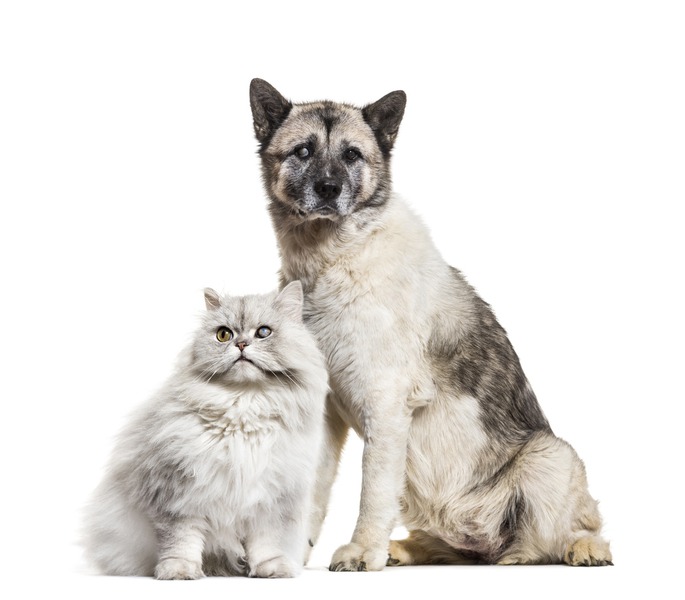As our loyal companions age, their needs evolve. Witnessing your pet enter their golden years can be a heartwarming experience filled with trust and deep affection. However, it’s also a time that demands extra attention and care from you, the pet parent. Taking steps to ensure their comfort can significantly improve their quality of life. Here’s how you can make your senior pet’s twilight years as golden as they deserve.
Understanding the Needs of Aging Pets
Just like humans, pets require different levels of care as they grow older. Their joints may not be as spry, their senses might become duller, and they might have specific dietary or medical needs. Recognizing these shifts in your pet’s lifestyle and comfort needs is the first step toward providing the best care during their senior years.
Easing Mobility Concerns
One of the more noticeable changes in senior pets is a decrease in mobility. Dogs and cats may have trouble jumping onto their favorite couch or making it up the stairs. To help with this:
-
Consider investing in pet-friendly steps or ramps.
-
Keep their living space primarily on one floor if possible.
-
Provide orthopedic beds to support their joints and ensure a good rest.
Maintaining a Comfortable Environment
Your pet’s environment should be a haven where they can rest and rejuvenate without stress. This could mean:
-
Keeping the room temperature consistent, as older pets may be more sensitive to heat or cold.
-
Ensuring their bed is away from drafts or too direct heat sources.
-
Using nightlights to help pets with deteriorating vision navigate during the dark hours.
Effective Pain Management Practices
Chronic pain from arthritis or old injuries is common in senior pets. It’s crucial to work closely with your veterinarian to manage your pet’s pain effectively through:
-
Prescribed medications.
-
Appropriate exercises that keep muscles strong but don’t strain joints.
-
Gentle massage therapy or acupuncture can soothe soreness.
Adapting Their Diet
Aging pets have different dietary needs. Calories need careful regulation to prevent obesity—a common problem in less active seniors. On the other end, some pets may lose weight and need more palatable, high-calorie foods. The right diet can help manage health conditions and improve their overall well-being. Consider:
-
Feeding specialized senior pet food rich in essential nutrients.
-
Supplementing with vitamins or minerals as recommended by your vet.
-
Ensuring fresh water is readily available to prevent dehydration.
Regular Health Monitoring
Close observation of your senior pet’s behavior and habits is crucial. Changes in appetite, water consumption, or elimination patterns can be early warning signs of health issues. Be mindful of any lumps, bumps, or changes in skin or coat quality, and don’t delay in contacting your veterinarian if you notice anything concerning.
As your pet ages, regular visits to a geriatric veterinarian at All Care Pet Clinic can be invaluable. These specialists can provide comprehensive assessments and tailor care strategies to your senior pet’s unique needs. They will also guide you through the process of monitoring and maintaining your pet’s health as they age.
Enhancing Mental Stimulation
Mental health is just as critical as physical health, especially for pets that may not be as active as they used to be. Keep your pet mentally stimulated with the following:
-
Interactive toys that challenge their problem-solving skills.
-
Puzzle feeders to make mealtime exciting.
-
New commands or tricks to keep their mind sharp.
Strengthening the Bond Through Quality Time
Spend quality time with your pet. Even if they cannot play as they did in their youth, quiet companionship is invaluable. Read to them, gently brush their coat, and make sure they know they are loved and secure in their family group.
Regular Grooming and Hygiene
Senior pets may find it harder to groom themselves thoroughly. Help them out with regular grooming sessions, which can also be a delightful bonding activity. Also, pay particular attention to their dental health—regular cleanings can prevent painful issues and infections.
Importance of Preventive Healthcare
Preventive healthcare is key to managing the aging process and ensuring your pet’s golden years are truly golden. Routine check-ups can catch issues early on when they are most treatable.
Staying up to date with dog vaccinations is also part of preventive health care. With age, the immune system wanes, making seniors more susceptible to infections. Ensure they are protected according to the latest vaccination guidelines.
Pet Wellness Exams
For feline friends, scheduling a cat checkup in Palmdale can help monitor ongoing health conditions and help veterinarians provide timely interventions, keeping your senior cat spry and comfortable for as long as possible.
Creating a Legacy of Love
Our pets leave paw prints on our hearts, and the care we provide in their autumn years is the legacy of love we build together. By attending to their physical, emotional, and medical needs, we can ensure their senior years are among their best—not in terms of activities and adventures, but in moments of peace, comfort, and contentment.
Final Thoughts
Making your senior pet’s golden years comfortable is about adjusting to their pace and needs with patience and compassion. It’s about providing them with a full life, even if it’s quieter than before. With informed care and a lot of heart, you can help your aged companion enjoy a serene and dignified quality of life right by your side.

